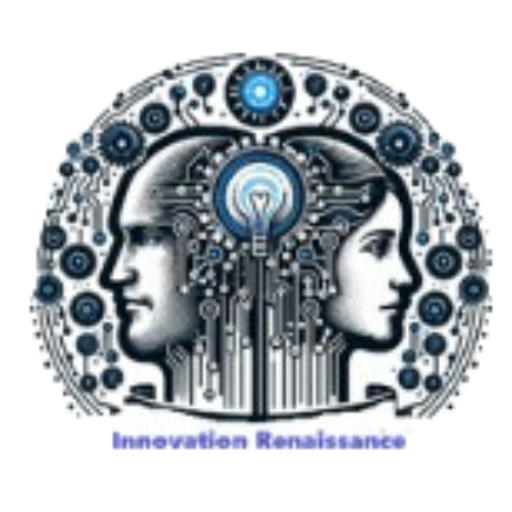Nothing in Applied AI makes sense except in light of specific needs:
Techniques to develop AI for impact, with examples from global health
Introduction:
Medical care in low resource settings is often constrained by a lack of trained health care workers, and if AI can be effectively deployed at scale as an accurate medical decision maker (e.g. in diagnostic algorithms), it has enormous potential to improve health care for underserved populations. But AI solutions, however well-intentioned, are guaranteed to fail at the clinic if they are mismatched to the specific constraints and needs of the medical problem. Therefore, as a necessary condition for success, AI teams must fully understand, independent of AI, the clinical constraints and needs of the problem, and must design these into the AI development process at every step.
In these two workshops, we’ll draw on examples from our AI work at Global Health Labs in global health (e.g. OB ultrasound, cervical cancer, malaria, and neglected tropical diseases) to illustrate both their unique challenges and also specific techniques for developing AI solutions tailored to meet such challenges.
Workshop 1 Title: AI for Cervical Cancer
Presenters: Courosh Mehanian, Olivia Zahn, Sourabh Kulhare, Ishan Shah, Charles Delahunt, Global Health Labs, Inc.
Abstract:
Cervical cancer kills over 250,000 women every year. Better diagnostics would enable earlier and more effective interventions. However, to be effective, AI needs to integrate into a larger landscape.
- Make the output matter
Any AI model will output a score. But to have impact, the model output must contribute to solving the clinical problem. We discuss how our cervical cancer models are designed to output results that combine with other information to deliver actionable diagnostics.
- Expect trouble
The real world situation will change in unforeseen ways during testing and deployment. We discuss methods to make models adaptable and robust to challenges such as image quality, improper device handling, data imbalance, and variations in patient data.
Workshop 2 Title: AI Ultrasound Saves Lives
Ultrasound has been indispensable in pregnancy care in rich countries since the 1970’s, and it has saved the lives of countless mothers and babies. But ultrasound is rarely used in low and middle income countries due to multiple barriers to access.
- Identify the right target
AI can remove barriers to access, but it must be carefully directed to have impact. We discuss how the AI models in our OB ultrasound project are focused on particular, high-value aspects of the access problem.
- Match the specifics
Modern generalized AI models usually do pretty well on a given problem. But having impact requires doing better, which in turn requires understanding and incorporating the specifics of the problem. We discuss how we tailor datasets and architectures of our AI ultrasound models to the particular clinical use cases.
- Hands-on case studies
After covering the techniques and principles, we’ll break into small groups and apply these techniques to plan AI development for concrete global health scenarios.
Takeaways:
Attendees will bring away core principles and specific techniques to enable effective design of AI for successful deployment and impact. These principles and techniques are relevant both to medical problems and more generally to any applied AI context.
Attendees:
- Equipment and software required: None
- Prerequisite: None
- Software name: None
- AI/ML: None
The certificate will be mailed to you upon completion of the workshop.
Presenter Bios:
Global Health Labs, Inc (GH Labs) innovates to reduce health disparities, especially in low- and middle-income countries. As a nonprofit corporation fully funded by Gates Ventures (the private office of Bill Gates), we partner with the Gates Foundation and other cross-sector leaders to develop health technology solutions for the people who need them most. https://www.ghlabs.org/ https://www.linkedin.com/company/ghlabs1
 Courosh Mehanian is a principal research engineer at GH Labs. He received a physics PhD from Cornell University. He has worked for three decades in artificial intelligence, having held positions at Boston University, MIT Lincoln Laboratory, the University of Oregon, and now GH Labs. He applies ML and computer vision to automated medical image understanding. https://www.linkedin.com/in/courosh
Courosh Mehanian is a principal research engineer at GH Labs. He received a physics PhD from Cornell University. He has worked for three decades in artificial intelligence, having held positions at Boston University, MIT Lincoln Laboratory, the University of Oregon, and now GH Labs. He applies ML and computer vision to automated medical image understanding. https://www.linkedin.com/in/courosh

Olivia Zahn received a B.S. Degree in Physics from Northern Arizona University in 2018 and a Ph.D. in Physics from the University of Washington in 2023. In 2023 she joined GH Labs, where she works on medical applications of computer vision and artificial intelligence. https://www.linkedin.com/in/olivia-zahn
 Sourabh Kulhare is an experienced Machine Learning Research Engineer at GH Labs working in multidisciplinary AI research groups. He focuses on developing efficient AI systems for low-cost healthcare applications. His research interests encompass deep learning architectures, sequence modeling, domain adaptation, generative modeling, and object detection. Sourabh holds a Master’s degree (M.S) in Computer Engineering from the Rochester Institute of Technology, specializing in video summarization and natural language processing. https://www.linkedin.com/in/skrealworld
Sourabh Kulhare is an experienced Machine Learning Research Engineer at GH Labs working in multidisciplinary AI research groups. He focuses on developing efficient AI systems for low-cost healthcare applications. His research interests encompass deep learning architectures, sequence modeling, domain adaptation, generative modeling, and object detection. Sourabh holds a Master’s degree (M.S) in Computer Engineering from the Rochester Institute of Technology, specializing in video summarization and natural language processing. https://www.linkedin.com/in/skrealworld
 Ishan Shah joined GH Labs in 2021 as a machine learning engineer and has primarily worked on the development and analysis of visual deep learning models to detect cervical precancer in low-resource settings. Previously, he completed his Master’s degree in data science from Stanford University and helped build deep learning algorithms for digital pathology slides at pharmaceutical company Roche. https://www.linkedin.com/in/ishanunc/
Ishan Shah joined GH Labs in 2021 as a machine learning engineer and has primarily worked on the development and analysis of visual deep learning models to detect cervical precancer in low-resource settings. Previously, he completed his Master’s degree in data science from Stanford University and helped build deep learning algorithms for digital pathology slides at pharmaceutical company Roche. https://www.linkedin.com/in/ishanunc/
 Charles Delahunt is a senior research engineer on the ML team at GH Labs and has applied ML to global health challenges for over 10 years. He has also held a postdoc researching ML methods at University of Washington’s applied math department. He serves on the scientific committee of the American Society of Tropical Medicine and Hygiene; has advised the WHO on digital microscopy for malaria; and serves on the board of RISE-MICCAI, which works to increase participation of LMIC-based researchers in the ML community. https://www.linkedin.com/in/charles-delahunt-b387968
Charles Delahunt is a senior research engineer on the ML team at GH Labs and has applied ML to global health challenges for over 10 years. He has also held a postdoc researching ML methods at University of Washington’s applied math department. He serves on the scientific committee of the American Society of Tropical Medicine and Hygiene; has advised the WHO on digital microscopy for malaria; and serves on the board of RISE-MICCAI, which works to increase participation of LMIC-based researchers in the ML community. https://www.linkedin.com/in/charles-delahunt-b387968
